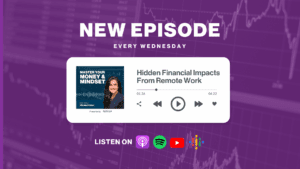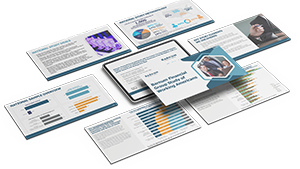
We’re all striving for financial independence in an effort to pave the way for financial security, greater flexibility, and overall peace of mind. Maybe you’re planning to establish an emergency fund to avoid dipping into savings, focusing on paying off debt, or upping those monthly 401(k) contributions to prepare for retirement, all excellent steps toward financial independence. Or maybe you’re longing for the stability that financial independence offers but not sure where to start.
Whatever your situation, understanding the importance of financial independence and the steps necessary to achieve that independence are critical for securing your financial future and achieving that peace of mind.
Read on to learn more about the importance of financial independence, its tie to mental health, and our top steps for successfully achieving financial independence.
Why is financial independence so important?
Investopedia defines financial independence as “the ability to live more or less as one wants to, within reasonable limits,” including “having the resources to deal with life’s ups and downs without scrimping, sacrificing, or going deeply into debt.” When you’re financially independent, you have the flexibility to live as you’d like – you’re not living paycheck to paycheck, debt isn’t holding you back, and you may choose to work out of interest rather than necessity. What’s more, financial independence can help to ease mental health issues associated with money, which is the case for many.
A 2013 study from the Clinical Psychology Review found that individuals with depression and anxiety are three times more likely to be in debt, indicating a correlation between financial stress and health issues. Financial wellness is critical to overall wellbeing, but when money is the #1 stressor in the U.S. leading to frustration, anxiety, and stress, according to a report, one’s mental health often takes a hit.
Getting your finances under control and taking the necessary steps to achieve financial independence can lead to better overall health and wellbeing, improving physical health, mood, relationships, and more. When you’re not stressed about money and your financial future, you have more time to focus on enjoying life and following your passions.
How Your Can Reach Financial Independence
With a growth mindset, a little bit of self-control, and these 5 steps, you will be well on your way to financial independence in no time.
Spend less than you make
This can be a tricky one, especially if you’re living paycheck to paycheck or are buried in debt. But living below your means is achievable if you’re willing to track your spending, differentiate between your needs and wants, determine (and get rid of) what you can live without, and seek help from a financial professional if necessary. Once you master the art of spending less than you earn, you’ll be able to better tackle debt, contribute more to savings, reduce money-related stress, and get closer to that financial independence you’re craving.
Choose a budgeting method that works best for you
Budgeting is an excellent tool, as it helps you better prioritize your needs, such as saving more money, paying off debt, or spending less. No two budgets are the same and deciding which method is best for you and your goals takes time, practice, and a little bit of research. Once you determine your budgeting strategy, you will be better able to cut costs in certain areas and up costs in others. Some of the most common include the 50/30/20 rule, reverse budgeting, and an all-cash diet. You can find more information on the different types of budgeting methods and how they work here.
Stick to realistic goals
Reaching your goals is easier when they’re attainable. Oftentimes, smaller or shorter-term goals, such as making coffee at home instead of going to Starbucks or tracking your daily expenses to see what you can easily cut out, are more realistic and motivating. Never underestimate the power of those smaller goals – at the end of the day, any smart money goal, big or small, will get you closer to financial independence. If you need help outlining goals, consider the SMART goal setting method which helps you better focus your efforts and up your chances of reaching your goals.
Set up an emergency fund
One of the biggest financial takeaways from COVID-19 was the importance of having funds set aside in case of emergency. Pandemic or not, emergency savings are important on the path to financial independence. According to an AARP report, 53% of Americans don’t have an emergency savings account. If you’re among those without an emergency fund and you’re worried about future unexpected expenses, you’re not financially independent. So what can you do? Open an emergency savings account and commit to automating a certain amount of income to this account monthly. You won’t have to think about it, and you’ll be ready in case an emergency is thrown your way.
Consider multiple sources of income
Relying on one source of income can be problematic. What if, for example, you lose your job and aren’t confident in your savings to get you by while you search for another job? That’s why it’s important to diversify your earnings. Consider investing conservatively in the stock market or real estate, using sharing apps (i.e. Uber, Vrbo), and even making money through hobbies, such as writing or crafting. Income diversity will result in greater financial stability and flexibility, and you’ll reach your financial goals, such as paying off more debt or saving more money, more quickly and more easily.
The idea of financial independence and all that comes with it – greater security, flexibility, and peace of mind – is exciting, but when considering the time and effort needed to get you there, it can be overwhelming. Luckily, we’ve broken down our top 5 steps to get you closer to financial independence. Additionally, you can always reach out to a financial professional who can provide greater insight into your individual goals and needs.




